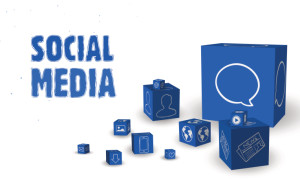Published on: April 29th, 2014 | Author: 411 Locals | Category: Marketing
Reading Time: 4 minutes… Huh? We’ll explain.
White Pages is huge. It has more people, business, and location data than just about any other single entity, including the U.S. Census Bureau.
Skip to your small or midsize business. Do you know what potential customers who are visiting your site are looking for, and are you willing to give it to them before you begin selling your most profitable product or service?
(more…)
Published on: April 8th, 2014 | Author: 411 Locals | Category: Marketing
Reading Time: 4 minutesWhat is native advertising? Will it help your business? How do you do it?
 Native advertising is a new term, but there is some argument as to whether it is a new form of advertising. The simplest way to describe it is advertising which “blends” into the medium where it appears, and advertisers and marketers have been doing this for years, from newspaper ads disguised as a column to radio ads that try to sneak their commercial in by making it a song that fits the station’s format. Social Media got a hold of this tried and true trick of marketing, and as they tend to do, made up a new name for it, native advertising—but as is always the case with social media, this type of ad has the added benefit (or responsibility) of encouraging interaction through shares, likes, comments, and more. So native advertising is this other type of advertising that has always been around, but for social media.
Native advertising is a new term, but there is some argument as to whether it is a new form of advertising. The simplest way to describe it is advertising which “blends” into the medium where it appears, and advertisers and marketers have been doing this for years, from newspaper ads disguised as a column to radio ads that try to sneak their commercial in by making it a song that fits the station’s format. Social Media got a hold of this tried and true trick of marketing, and as they tend to do, made up a new name for it, native advertising—but as is always the case with social media, this type of ad has the added benefit (or responsibility) of encouraging interaction through shares, likes, comments, and more. So native advertising is this other type of advertising that has always been around, but for social media.
If your business has social sites it may have occurred to you at some point that it is a bit harder to get people to care about your brand during their social media time than you first imagined. Who knew? Your customers are not actually all of that interested in singing the praises of brands and products like a paid spokesperson. They must be bribed, cajoled, asked nicely to talk about you in most cases at least.
(more…)
Published on: March 31st, 2014 | Author: 411 Locals | Category: Marketing
Reading Time: 2 minutes Whether you are the owner of a small business or manage a team, there are some questions to keep in mind that will ensure that the way you manage those under you is helping and not hindering overall productivity.
Whether you are the owner of a small business or manage a team, there are some questions to keep in mind that will ensure that the way you manage those under you is helping and not hindering overall productivity.
1. If you’ve hired quality employees, let them know what you want done and not necessarily exactly how to do it (within business guidelines of course). If you have time to micromanage every aspect of how someone is doing something maybe you as the manager don’t have enough to do. And if you have to micromanage to in order to ensure things are done the right way, it means you need better employees. Usually an employee should be better than you at that specific thing you hired them to do, otherwise why did you hire them?
2. Figuring out how to fix a problem is worth more than figuring out who is to blame, as far as your bottom line is concerned. With that said however, if the same problems persist despite fixes, it may be time to get to the source, which may mean figuring out who or what is to blame.
(more…)
Published on: March 21st, 2014 | Author: 411 Locals | Category: Marketing
Reading Time: 3 minutes 1. The mindset that customers are not smart. They may well not be. 50% of all humans on earth have average or below average intelligence, statistically. If you sell a Mensa study guide then your target customer is probably smarter than you. If you sell helmets for daily wear, well you might be smarter than your target customer. That’s irrelevant. Whether you customer is buying a helmet to safely walk to the grocery store or if they are trying to figure out cold fusion, they don’t think they are dumb. You hear it in offices everywhere all the time, sometimes it’s just letting off steam, and maybe that’s okay, but if the general idea of “our customers are idiots” begins seeping into how you market, how you talk on the phone, or anything else you do, you are in trouble as a business. Here’s the thing, even if they are dumb they are not so dumb that they don’t know when someone else is treating them like an idiot, and it is just as often the case that the business is missing the point as it is the customer missing it. Assume your customer is smart. Sell to the smart customer. Even if the dumb customers don’t get it, they’ll have a good impression on some undefined level. Meanwhile treating them all like idiots will just piss off the idiots without knowing why and piss off the smart customers, and they’ll know exactly why.
1. The mindset that customers are not smart. They may well not be. 50% of all humans on earth have average or below average intelligence, statistically. If you sell a Mensa study guide then your target customer is probably smarter than you. If you sell helmets for daily wear, well you might be smarter than your target customer. That’s irrelevant. Whether you customer is buying a helmet to safely walk to the grocery store or if they are trying to figure out cold fusion, they don’t think they are dumb. You hear it in offices everywhere all the time, sometimes it’s just letting off steam, and maybe that’s okay, but if the general idea of “our customers are idiots” begins seeping into how you market, how you talk on the phone, or anything else you do, you are in trouble as a business. Here’s the thing, even if they are dumb they are not so dumb that they don’t know when someone else is treating them like an idiot, and it is just as often the case that the business is missing the point as it is the customer missing it. Assume your customer is smart. Sell to the smart customer. Even if the dumb customers don’t get it, they’ll have a good impression on some undefined level. Meanwhile treating them all like idiots will just piss off the idiots without knowing why and piss off the smart customers, and they’ll know exactly why.
2. The customer is always right. The customer is right about half the time, like everyone else. While “the customer is always right” is a wonderfully clever slogan, it can be detrimental to your staff, to your brand image, and to the bottom line. Here’s when the customer is wrong almost all of the time: 1. When they are being asses to your employees. One customer’s satisfaction is not worth all the good a good employee can do over years of employment. Don’t worry too much about that customer if everyone else is happy and they are just being difficult. On the other hand though, objectively look at the merits of a complaint, just don’t go in with the assumption that this random person happens to be right because they happen to be a customer. 2. When they are giving you marketing or product advice. One of the most helpful tools for marketing or branding, or even deciding on a new service or product, can be focus groups, where you take the opinions of random customers. But only when the results are being evaluated by a professional. Because when customers are in a focus group they are not in the customer mindset, now they are in a business mindset or an advertising mindset which is not who you are probably trying to sell to and it is not a roll they have experience with. If you do not know how to interpret the results of a survey or a focus group, these tools will almost always do more harm than good.
(more…)



 A tall dark stranger will come into your life – Ominous or the beginning of a romance novel? In this case the tall dark stranger is one of many other strangers that businesses are going to attract to their product or service via social media, “Ugh, you said social media. My eyeballs just fell asleep!” Social media pimping by marketers is nothing new. What will change however is Google+ will take on a more prevalent role for optimization (even if like 5 people actually use it) so businesses should get that account along with Facebook and Twitter. Basically, have Facebook, Twitter, and Google+ and your bases are covered. Additional sites are gravy though if you have the time and the manpower to make it happen.
A tall dark stranger will come into your life – Ominous or the beginning of a romance novel? In this case the tall dark stranger is one of many other strangers that businesses are going to attract to their product or service via social media, “Ugh, you said social media. My eyeballs just fell asleep!” Social media pimping by marketers is nothing new. What will change however is Google+ will take on a more prevalent role for optimization (even if like 5 people actually use it) so businesses should get that account along with Facebook and Twitter. Basically, have Facebook, Twitter, and Google+ and your bases are covered. Additional sites are gravy though if you have the time and the manpower to make it happen. Native advertising is a new term, but there is some argument as to whether it is a new form of advertising. The simplest way to describe it is advertising which “blends” into the medium where it appears, and advertisers and marketers have been doing this for years, from newspaper ads disguised as a column to radio ads that try to sneak their commercial in by making it a song that fits the station’s format. Social Media got a hold of this tried and true trick of marketing, and as they tend to do, made up a new name for it, native advertising—but as is always the case with social media, this type of ad has the added benefit (or responsibility) of encouraging interaction through shares, likes, comments, and more. So native advertising is this other type of advertising that has always been around, but for social media.
Native advertising is a new term, but there is some argument as to whether it is a new form of advertising. The simplest way to describe it is advertising which “blends” into the medium where it appears, and advertisers and marketers have been doing this for years, from newspaper ads disguised as a column to radio ads that try to sneak their commercial in by making it a song that fits the station’s format. Social Media got a hold of this tried and true trick of marketing, and as they tend to do, made up a new name for it, native advertising—but as is always the case with social media, this type of ad has the added benefit (or responsibility) of encouraging interaction through shares, likes, comments, and more. So native advertising is this other type of advertising that has always been around, but for social media. Whether you are the owner of a small business or manage a team, there are some questions to keep in mind that will ensure that the way you manage those under you is helping and not hindering overall productivity.
Whether you are the owner of a small business or manage a team, there are some questions to keep in mind that will ensure that the way you manage those under you is helping and not hindering overall productivity. 1. The mindset that customers are not smart. They may well not be. 50% of all humans on earth have average or below average intelligence, statistically. If you sell a Mensa study guide then your target customer is probably smarter than you. If you sell helmets for daily wear, well you might be smarter than your target customer. That’s irrelevant. Whether you customer is buying a helmet to safely walk to the grocery store or if they are trying to figure out cold fusion, they don’t think they are dumb. You hear it in offices everywhere all the time, sometimes it’s just letting off steam, and maybe that’s okay, but if the general idea of “our customers are idiots” begins seeping into how you market, how you talk on the phone, or anything else you do, you are in trouble as a business. Here’s the thing, even if they are dumb they are not so dumb that they don’t know when someone else is treating them like an idiot, and it is just as often the case that the business is missing the point as it is the customer missing it. Assume your customer is smart. Sell to the smart customer. Even if the dumb customers don’t get it, they’ll have a good impression on some undefined level. Meanwhile treating them all like idiots will just piss off the idiots without knowing why and piss off the smart customers, and they’ll know exactly why.
1. The mindset that customers are not smart. They may well not be. 50% of all humans on earth have average or below average intelligence, statistically. If you sell a Mensa study guide then your target customer is probably smarter than you. If you sell helmets for daily wear, well you might be smarter than your target customer. That’s irrelevant. Whether you customer is buying a helmet to safely walk to the grocery store or if they are trying to figure out cold fusion, they don’t think they are dumb. You hear it in offices everywhere all the time, sometimes it’s just letting off steam, and maybe that’s okay, but if the general idea of “our customers are idiots” begins seeping into how you market, how you talk on the phone, or anything else you do, you are in trouble as a business. Here’s the thing, even if they are dumb they are not so dumb that they don’t know when someone else is treating them like an idiot, and it is just as often the case that the business is missing the point as it is the customer missing it. Assume your customer is smart. Sell to the smart customer. Even if the dumb customers don’t get it, they’ll have a good impression on some undefined level. Meanwhile treating them all like idiots will just piss off the idiots without knowing why and piss off the smart customers, and they’ll know exactly why.